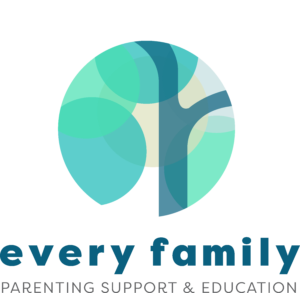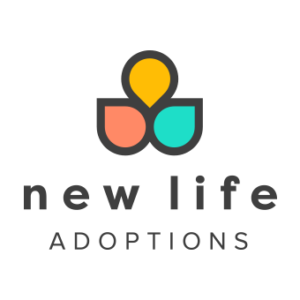
Abortion and Minnesota: What the Law Says
After getting a positive pregnancy test, your mind may be racing with a variety of emotions like fear, anger, or excitement. Some women may determine their plan for the pregnancy right away, while others may need more time. Regardless, it’s important to be educated on all pregnancy options (abortion, adoption, parenting) when facing an unexpected pregnancy to make an informed decision. This post will examine a woman’s legal rights surrounding abortion, what abortion methods are legal in Minnesota, and what steps can be taken if facing such a heavy decision.
Your Legal Rights
At least 24 hours before you have an abortion, you are required to give voluntary and informed consent that includes the medical risks of an abortion, the gestational age of the baby at the time of the abortion, and the medical risks of carrying the baby to term. You also have the right to be made aware of social aspects surrounding a pregnancy decision. These aspects include medical benefits available for prenatal care, childbirth and neonatal care, the father’s liability in supporting the child, a list of agencies that offer alternatives to abortion, and information on fetal pain.
Not only should you be informed of your options and risks, you should also be allowed to ask questions. This 24-hour waiting period is in place so that women have the right to think through their decision with the facts presented to them.
What Methods of Abortion Are Legal
Generally, abortions can be divided into two categories: before 14 weeks gestation and after 14 weeks gestation. While the medical aspects of these individual methods will be briefly outlined below, each method can be discussed further by calling one of our offices and/or scheduling an appointment with one of our staff.
Before 14 Weeks:
The most common method of abortion is a non-surgical abortion. This may also be referred to as a medical abortion, chemical abortion, RU-486, or “the abortion pill.” This type of abortion is legal up to 70 days after the first day a woman’s last menstrual period. This method uses a two-step process to end a pregnancy. The first step is taking a drug that blocks progesterone, which is a hormone needed to sustain a pregnancy. The second step is taking another medication that causes uterine contractions to expel all uterine contents including the baby and placenta.
The other method used prior to 14 weeks is called a vacuum aspiration abortion. This method opens the cervix and uses suction to remove the baby and placenta from the woman’s uterus.
After 14 Weeks:
After 14 weeks, there are two methods used. One of these methods is termed dilation and evacuation (D&E). This method is similar to a vacuum aspiration abortion in that the cervix needs to be dilated. This can be done with sponges or rods. After the cervix is opened, medical instruments such as forceps and suction are used to remove the baby and placenta.
The other method of abortion used after 14 weeks is labor induction. This form of abortion uses medication to initiate early labor. This may include receiving a drug intravenously (in your blood stream), intravaginally, or directly into the amniotic sac. Both intravenous and intravaginal medications start uterine contractions which induce labor and eventually lead to the delivery of the baby. In a small percentage of these deliveries, the baby is born alive. If the medication that is injected directly into the amniotic sac is used, this medication stops baby’s heartbeat and then stimulates uterine contractions.
When Does Abortion Become Illegal
In Minnesota, abortions are legal until what’s known as the “age of viability” which is the point in development when a baby can survive outside the womb. Currently, viability is determined to be 23 weeks gestation. Abortions may still be permitted after the age of viability if it’s determined the mother’s physical health is at a significant risk.
No matter what options are being considered, each choice can have a lasting impact. If you are in the decision-making process and feel overwhelmed or lost, we want you to know you are not alone. Call or text any of our offices to talk through your options or schedule an appointment for a pregnancy test, ultrasound, or decision-making appointment.
Learn More
How Healthy Is My Relationship?
One way to know if your relationship is healthy is by asking yourself if these key qualities of a healthy relationship align with your relationship. These qualities not only apply to romantic relationships, but can be applied to friendships and families as well.
- Trust. Trust is many times the first quality that needs to be established before any more of the relationship can build. To know if your relationship has trust, we first need to look at what trust is. The Cambridge dictionary defines trust as believing that someone is good and honest and will not harm you, or that something is safe and reliable. Trusting someone is a big step. Knowing they are safe and want the best for you is essential to a healthy relationship. Trust is not something that can be established overnight. Trust should be built on honest, open conversations with each other. This doesn’t mean you need to give everything you have to this person. Trust is also built on boundaries and having respect for each other’s boundaries. This trust needs to go both ways. Of course, trust can be broken but this leads to another key quality.
- Forgiveness. A lot of times forgiveness seems like an act that is for someone else. But in reality, forgiveness can be a freeing and amazing act for yourself too. The amazing thing about forgiveness is it allows you to be free from whatever hurt someone caused you. True forgiveness is releasing someone in your heart. What they did no longer has the right to cause pain and bitterness. It is important to remember that forgiveness is not reconciliation. It is recognizing the other person did something wrong and steps need to be taken to reestablish the trust once built. Even if trust isn’t completely back to where it used to be, forgiveness is not holding bitterness against that person who hurt you and treating them with love and kindness.
- Kindness. Kindness seems simple but sometimes can be very hard to give, especially in times when others need it the most. One reason kindness is hard is because it is a selfless act. Acting in true kindness means you are giving and not looking to receive anything in return. Kindness involves a lot of grace; grace for others knowing that you also have you own faults and are going to fail them just as they have failed you. A lot of times grace is shown in kindness. Kindness can be shown in many ways from small acts, big gestures, or simply forgiving.
- Patience. Being patient with others is one way you can show them love. To be patient with someone, you need to have love and respect for that person. Being patient with someone can keep you from saying or doing something you may regret. Sometimes patience means biting your tongue and waiting, waiting for the other person to make the change you’ve been waiting on. When waiting on someone, it’s easy to pick out their bad qualities and criticize everything they do. Instead, it’s important to let go of any resentment you have in your heart and be thankful the qualities in them you appreciate the most.
- Support. Relationships that support each other push each other to be better. Whether this is spiritually, career focused, or physically. A relationship that is supportive doesn’t condemn when someone fails, but encourages and fights with that person to keep going. Supportive relationships build each other up, not tear each other down. Supporting someone can mean helping your partner see their goals and encouraging them even when it seems impossible. Sometimes supporting each other can bring about a tangible response such as running errands, cooking a meal, or providing childcare to help them reach their goal.
It is impossible for a relationship to be perfect, but a healthy relationship does not consist of many things. When you care about someone deeply, it is sometimes hard to see how they may be hurting you. There are some qualities of a relationship that are red flags and point to an abusive relationship. Some of these signs include:
- Telling you that you never do anything right.
- Showing extreme jealousy of your friends or time spend away from them.
- Preventing or discouraging you from spending time with friends, family, or peers.
- Insulting, demeaning, or shaming you, especially in front of other people.
- Preventing you from making your own decisions.
- Controlling finances.
- Pressuring you to have sex or perform sexual acts you’re not comfortable with.
- Pressuring you to use drugs or alcohol.
- Intimidating you through threatening looks or acts.
- Insulting your parenting or threatening to harm or take away your children or pets.
- Intimidating you with weapons.
- Destroying your belongings.
If you are experiencing even one of these behaviors, it is important to get help. If you are in immediate danger, you can call the National domestic violence hotline at 1.800.799.SAFE (7233) or text START to 88788.
Learn More
Abortion Pill Reversal
Did you know that there may be help for people that have taken the abortion pill and regret their decision? It may not be too late! Abortion Pill Reversal has worked for some, and it might work for you.
What is a Chemical Abortion?
In order to learn more about Abortion Pill Reversal, it’s important to understand what takes place during a chemical abortion. Known as RU-486, a chemical abortion is a two-step process with two different medications: mifepristone and misoprostol. Typically, a woman seeking a medical abortion will take the first medication, mifepristone, in the clinic or facility. This medication blocks progesterone, a natural hormone secreted by a woman’s body which is needed for the pregnancy to continue and baby to grow.
The second medication, misoprostol, is taken about 6-72 hours after the first medication is taken. This pill causes uterine contractions to expel the pregnancy. After taking the second pill, a woman will start bleeding and cramping within 2-24 hours.
What is Abortion Pill Reversal?
The first step in the process is an ultrasound to determine placement of the pregnancy, heart rate, and dating. In attempt to reverse a chemical abortion, a naturally occurring hormone called progesterone may then be prescribed.
Progesterone is necessary to sustain a pregnancy. Progesterone is prescribed either in pill form, an injection, or vaginally. Since the first pill in a chemical abortion blocks progesterone, the goal is to give the body extra doses of progesterone to lessen the effects of the abortion pill. Typically, the progesterone treatment continues throughout the first trimester of pregnancy along with frequent ultrasounds.
The goal in the initiation of the Abortion Pill Reversal process would be to have an ultrasound within 24 hours of taking the first abortion pill or mifepristone. However, there have been many successful reversals that were done within the first 72 hours of taking the abortion pill. Even if you are past 72 hours, please call the Abortion Pill Rescue Hotline at (877) 558- 0333. It might not be too late. Studies show that Abortion Pill Reversal has a 64-68% success rate.
Is Abortion Pill Reversal Safe?
Progesterone, the hormone given in the reversal process, has been safely used in pregnancy for over 50 years. Progesterone is even used in pregnancy for women that have repeated miscarriages or in women that may be going through infertility treatments. According to the Abortion Pill Rescue website, “A 1999 FDA review revealed no increased risk of birth defects in pregnant women taking progesterone.” Studies have shown that neither mifepristone or progesterone are associated with birth defects.
Are there side effects of Progesterone?
There are a few potential side effects which include lack of energy, sleepiness, dizziness, stomach discomfort, and headaches. Not every woman will experience these side effects. If a woman were to experience these side effects while taking progesterone, she should talk to her doctor for follow up.
How do I start the Abortion Pill Reversal process?
The first step is to call the Abortion Pill Rescue Hotline at (877) 558-0333 or call First Care Pregnancy Center at (612) 866-7643. You will be connected with a healthcare professional to see if reversal is possible. If reversal is possible, an appointment will be made for an ultrasound and to potentially start progesterone treatment.
All services at First Care Pregnancy Center are free and confidential. Our staff are ready and willing to help answer your questions and help walk you through the Abortion Pill Reversal process, judgement free. Do not delay, and call today if you have questions or would like more information.
Our Sources
“Reversal FAQ.” Abortion Pill Rescue – FAQs, Heartbeat International, 2021, www.abortionpillreversal.com/abortion-pill-reversal/faq
FDA Briefing Document NDA 021945 Hydroxyprogesterone Caproate Injection 1999
Learn More

Plan C: What is it?
What is Plan C?
COVID-19 changed a lot of things for a lot of people. In a season where many things have gone virtual, you may be finding yourself with questions about telemedicine, TelAbortion, and access to the abortion pill without having to see a doctor. You may have head of Plan C, but are wondering what it means?
If you have been searching for abortion options online, you may have stumbled upon Plan C. Plan C, founded in 2015, is a campaign to ensure everyone knows about abortion pills. What they are, how they’re used, and how people are accessing them in the US for a safe self-managed abortion.
Ordering abortion pills online may seem like a convenient and safe way to end your pregnancy. However taking abortion pills, or any drug, without a health professional’s oversight poses serious risks to your health now and in the future.
The U.S. Food and Drug Administration (FDA) only approves the abortion pill (which is made up of two different drugs: mifeprex and misoprostol) when prescribed and dispensed by health care professionals. They also warn people not to order these drugs over the internet. Online abortion pills bypass important safeguards designed to protect your health. Abortion pills have special safety restrictions on how it is distributed to the public. When ordering online, proper assessment for the safety of this drug can not occur.
The abortion pill or non-surgical (medical) abortion is an abortion method approved by the FDA for pregnancies up to 70 days after the last menstrual period. Without a confirmed ultrasound to determine the age of baby, the risk of taking the abortion pill past this recommended date could occur.
What to Do?
If considering an abortion, we highly encourage you to do your research. Find a place where you can get a lab confirmed pregnancy test and ultrasound to confirm pregnancy before deciding whether or not take the abortion pill.
At First Care Pregnancy Center, we do not provide nor refer for abortions. We do offer free and confidential pregnancy tests and ultrasounds. If this is something you would like before deciding to have an abortion, please give us a call!
Our Sources
https://www.fda.gov/drugs/postmarket-drug-safety-information-patients-and-providers/mifeprex-mifepristone-information
https://www.health.state.mn.us/people/wrtk/handbook.html
https://plancpills.org/about
Learn More
When Abortion Feels Like the Only Option
Finding out you’re pregnant can be overwhelming and scary, especially if having a baby wasn’t part of your plan right now. With the current uncertainty with COVID-19, even more complexity has been added to becoming pregnant. We have talked with many pregnant women who have felt alone, scared, and confused, uncertain of what to do with the idea of being pregnant and abortion feels like the only option.
If your pregnancy was unexpected you might be thinking “How am I going to make this work?” For many people, an abortion seems like an easy way to erase or undo the situation they are currently finding themselves in. While abortion may seem like an easy fix, abortion is not just a simple medical procedure. For many women, it is a life-changing event with significant physical, emotional, and spiritual consequences. Most women who have had an abortion say they wish they had been told all of the facts about abortion and its risks.
Your Options
Abortion: Did You Know?
An average abortion costs anywhere between $0-1,000 depending on the type of abortion and medical insurance. Depending on the gestational age of the baby, a non-surgical or surgical abortion may be performed. According to the U.S Food and Drug Administration (FDA) cramping and vaginal bleeding are expected side effects. In some cases, very heavy vaginal bleeding will need to be stopped by a surgical procedure, which has to be performed in a healthcare provider’s office.
Other common side effects of a medical abortion include nausea, weakness, fever, chills, vomiting, headache, diarrhea, and dizziness in the first day or two after taking the two medicines. For surgical abortions, possible complications include heavy bleeding (hemorrhage), infections, and incomplete abortions. In addition to physical complications, emotional side effects of abortion may be experienced as well. Long-term grief and loss is common with those who have had abortions, and support is essential during that time.
So what other options are there to consider?
Parenting: Support is Available
If you are considering parenting, you probably have a lot of questions. It is natural to feel some uncertainty as you try to imagine your life in a new way, and depending on where you are in life, you might be feeling overwhelmed as you try to figure out how you would parent. While being a parent is both challenging and rewarding, choosing to continue your pregnancy enables you to experience a baby growing inside of you all the way to the baby gradually developing unique characteristics, interests, and personalities. Having a baby is a lifelong commitment that takes love and patience. Take time to really consider what parenting would look like for you.
You don’t need to feel alone. Our professional staff at First Care are here to work with you to provide the resources and support you need to create a successful parenting plan. We offer support such as a parenting program (up to age 5), baby items such as diapers, wipes, and clothing, prenatal education classes, community resources, and grant and aid assistance. We desire to help you to make an informed decision and provide support should you decide to parent.
Adoption: Make a Plan Right for You
Adoption, just like parenting and abortion, is a significant, life-changing decision. Placing a child for adoption is a courageous and loving decision and perhaps making an adoption plan is an option you want to consider. There is a wide range of adoption options available, from closed adoptions to open adoptions and we encourage you meet with our staff and learn about adoption so you can make an informed decision.
If you are worried about the medical expenses related to continuing with your pregnancy, it is important to know that adoptive families or adoption agencies will usually assist with medical and living expenses. You can select the adoptive family based on your preferences, and you also decide what level of involvement you will have in your child’s life. You can choose whether the adoption is open, closed, or somewhere in between — based on your level of comfort and future plans.
If you’re thinking about adoption, we would love to connect and help guide you in this decision.
It is natural to be scared or hesitant about pregnancy, especially when you weren’t expecting it to happen yet. But we encourage you to take time to talk about your decision with your family and friends and consider all of your options before deciding on a plan.
If you want to talk about your situation and learn more about your options, contact our staff today.
https://www.fda.gov/drugs/postmarket-drug-safety-information-patients-and-providers/questions-and-answers-mifeprex
https://www.health.state.mn.us/people/wrtk/handbook.html
Learn More
Plan B: Is It Abortion?
Thinking you might be pregnant when you aren’t ready for a baby may have you considering Plan B, or the Morning After Pill, as an emergency contraceptive. If you’re wondering about the ethical complications of Plan B, wondering if it is abortion, or want to know more about how it works, you’ve come to the right place.
A study from Princeton University says this about emergency contraceptives, like Plan B:
To make an informed choice, women must know that [emergency contraceptives] … prevent pregnancy primarily by delaying or inhibiting ovulation and inhibiting fertilization, but it is not scientifically possible to definitively rule out that any of these methods, including breastfeeding, may inhibit implantation of a fertilized egg in the endometrium. At the same time, however, all women should be informed that the best available evidence is that the ability of levonorgestrel and ulipristal acetate ECPs to prevent pregnancy can be fully accounted for by mechanisms that do not involve interference with post-fertilization events.
If you’re unsure what that means, that’s okay! This article will break it down for you. We want to explain what Plan B is and how it works, so you can make an informed decision about your possible pregnancy. Let’s get started!
What is Plan B?
Plan B is one type of emergency contraceptive. Women typically use Plan B after unprotected sex or after the failed attempts of another birth control method: a condom breaks, a dosage of birth control gets missed, etc.
Plan B is available over-the-counter in most drugstores. A prescription is not required, and anyone of any age can buy it in-store or online. It typically costs $15 to $50, depending on the brand and where you buy it from.
How Does Plan B work?
How Plan B works is dependent on when a woman takes it. Therefore, before explaining how Plan B works, it’s important to understand a few key terms within a woman’s monthly cycle: ovulation, fertilization, and implantation.
- Ovulation occurs during the midpoint of a woman’s cycle when an egg gets released from her ovaries.
- Fertilization occurs after intercourse when a sperm enters a woman’s released egg. This is also called “conception.”
- Implantation occurs when a fertilized egg attaches to the uterine wall.
Research suggests that Plan B primarily interferes with the ovulation stage of pregnancy. Plan B does this by containing a high dosage of levonorgestrel, a hormone that essentially mimics progesterone. Progesterone is naturally produced in a woman’s body and gets released after ovulation to thicken the wall of the uterine lining to prepare for a fertilized egg and also maintain a pregnancy. If there is no fertilized egg, progesterone levels drop and your period begins.
Progesterone is found in both Plan B and birth control pills. However, Plan B is less effective when used routinely, and it should not be relied upon as a primary form of birth control. Plan B also contains a high concentration of levonorgestrel, which can lead to negative or acute side effects.
What About Ella? Is It The Same as Plan B?
Not exactly. Ella is another brand of emergency contraception that contains ulipristal acetate. Ella is only available by prescription, and it is recommended to take only once during a menstrual cycle. There have not been adequate studies to know if ulipristal acetate is safe or effective to take several times during a cycle. Taking Ella alongside Plan B can cancel the effectiveness of both.
Research says that the primary function of Plan B (levonorgestrel) is to interfere with ovulation, which can prevent fertilization. If a woman has unprotected sex after ovulation and takes Plan B, studies show that taking Plan B doesn’t lower a woman’s chance of getting pregnant.
Similarly, Ella (ulipristal acetate) interferes with ovulation, and studies have indicated that it can alter the endometrium, or the uterine lining. It’s inconclusive if this could prevent implantation of a fertilized egg. However, studies agree that neither emergency contraceptive will terminate an established, active pregnancy.
Here’s a quick comparison chart to show you the differences between Plan B and Ella.
| Plan B / Levonorgestrel | Ella / Ulipristal Acetate | |
| Offered Over-the-Counter | Yes | No |
| Prescription Required | No | Yes |
| Delays Ovulation | No | Possibly |
| Prevents Ovulation | Yes | Yes |
| Impairs Sperm Function | Possibly, at higher dosages | No |
| Compromises Uterine Lining | Possibly | Possibly |
| Inhibits Fertilization | Possibly | Possibly |
| Affects Implantation | No | Possibly |
| Interferes with Post-Fertilization | No | No |
| Terminates Active Pregnancy | No | No |
(Source: Study from Princeton University in 2019)
How Effective Is Plan B?
If taken within the recommended 72 hours (three days) of unprotected sex, Plan B has a 56% to 89% chance of preventing pregnancy. Again, this is dependent on when a woman takes the pill during her cycle, and at what point after unprotected sex she takes the pill. If she takes Plan B after ovulation or after the recommended time frame, she will likely experience a similar pregnancy rate than if she didn’t take emergency contraception in the first place. Some studies also indicate that Plan B may not work as effectively in women who are overweight.
Experts say that Plan B does not stop an active pregnancy, and the side effects it may have on an unborn baby are not well researched. For these reasons, a woman should not take Plan B if she suspects she is already pregnant.
What are Side Effects of Plan B / Levonorgestrel?
If a woman decides to take Plan B, here is a list of side effects she should be aware of. Common side effects of taking Plan B include:
- Nausea and Vomiting
- Dizziness
- Tiredness
- Headache
- Depression
- Abdominal Pain
- Breast Tenderness
- Spotting
- Cycle Changes (including heavy bleeding or timing irregularities)
These side effects usually last a few days. When it comes to cycle changes, her period may come sooner, later, last longer than expected, or she may bleed heavier than usual. If a woman’s period is a week or more late, she should take a pregnancy test.
Because the hormonal dosage in Plan B is much higher than what most women experience, some who have taken it experience severe side effects. Rare side effects can include:
- Vision changes
- Migraines
- Stroke
- Breast cancer
- Ectopic pregnancy
If a woman experiences severe effects from taking Plan B, she should seek professional medical assistance immediately.
Need Help Making the Right Decision?
If you would like support in making a decision about your unplanned pregnancy, we have friendly and trained staff who would love to speak with you about your options, judgement free. Feel free to call or text us at (612) 712-6113. You can also schedule a visit at one of our pregnancy centers in Minneapolis, Richfield, Rochester, or Saint Paul for a free consultation.
Like a non-judgemental friend, we are here for you! We will always have your best interest in mind as we help you sort through the pros and cons of your options. All our services are free and confidential for your benefit.
Learn More
COVID-19 and Pregnancy
COVID-19 has brought many unknowns and uncertainties into the world, especially for those who are just discovering they are pregnant.
Under normal circumstances, it’s not uncommon for pregnant women to have lots of different emotions and questions about how pregnancy will change their life. During this time of COVID, these uncertainties and questions may be even more pronounced.
To help address these concerns, we asked our medical staff to answer your most common questions about COVID during pregnancy. The following information should not replace talking with your doctor about any concerns.
How does COVID-19 affect a pregnancy?
Research is still in process surrounding the effects COVID-19 could have on pregnancy. Pregnant women may be higher risk for negative effects from the virus, but research has shown pregnant women are not at increased risk of mortality (death).
How can I protect myself from COVID-19 if I’m pregnant?
You can protect yourself by washing your hands frequently, avoid touching your face, limiting direct contact with others outside of your household (especially those who are sick), and wearing a face covering. It’s also important to stay hydrated, eat balanced meals, keep your prenatal appointments, and get plenty of rest.
Can COVID affect the health of my baby after birth?
It isn’t yet known whether or not COVID impacts the health of infants after birth. In regards to breastfeeding, the limited research conducted shows no evidence of the virus being transmitted through breast milk.
What should I do if I’m undecided about my plan for pregnancy?
Once you have verified your pregnancy and confirmed how far along you are, take time to learn about all of your options. At First Care we provide free options counseling with Licensed Social Workers or Client Advocates who can answer your questions about each pregnancy option. Our professional staff will help you weigh the pros and cons of each decision and connect you with resources and referrals to support you.
Schedule an Appointment Today
All of our services are free and confidential. Call the location nearest you to schedule a lab-quality pregnancy test, limited ultrasound, or appointment to meet with a social worker to discuss your pregnancy options.
Learn More
Am I a Good Mom?
“There is no way to be a perfect mother, but a million ways to be a good one.” – Jill Churchill
Comparison Is The Thief of Joy
In this day of social media, comparing ourselves to others is hard to escape. This is especially true when it comes to the most important job of all- being a mom!
One pass through Facebook, Instagram or the local park will have you feeling like you could never measure up to all the other “perfect” moms out there. Whether you are pregnant or have four kiddos whirling around you, comparisons to others, added to our own unrealistic expectations, can make us feel less than adequate and can rob us of the joy in this important job of developing these tiny humans into fully functioning adults!
Keep Perspective
Here are a few things to remember as a parent:
- Parenting is a marathon, not a sprint. Pace yourself and extend grace to yourself! Remind yourself of the end goal.
- One bad day (when you have lost it too many times to count) does not define you as a parent.
- Children are resilient especially when they know that you love them and want the best for them.
- “This too shall pass” are four little words that can get you through most stages or situations with your kids that are especially trying.
Focus on What you can Control
Here are a few suggestions of things you can do to become the best mother for your children:
- Don’t compare yourself to others. Care deeply about what is best for your kids not how others see you or think about you.
- Act and react with love and kindness on your child’s behalf, and when you blow it, be quick to ask for forgiveness. Kids will learn more from this than anything else you do!
- Ask for help, ask for wisdom, ask for prayer from others who have walked the road of motherhood! We are all in this together!
- Practice being grateful. Thankfulness for even the little things like fixing a snack, folding another load of laundry, or tucking a toddler in at the end of a long day can be a game changer when it comes to our attitudes and mental health.
Go Easy On Yourself
Being a mom is hard work, but trying to be a “perfect” mom is REALLY hard work! The love you have for your child will cover a multitude of the mistakes that you will surely make over the years while parenting. It is good to realize that children are not the only ones who are growing and developing!
As parents, we can also grow into people with more patience, grace, forgiveness, flexibility and love. The journey of parenting little ones can seem unending, but it will be over before you know it! Savor the great privilege! Remember, you are the perfect mother for your child!
Find Encouragement When You Need It
Could you benefit from encouragement, wisdom, and tools for your parenting journey? Check out the Every Family parenting program. During your time in the program, you’ll meet one-on-one with a parenting coach and dive in to relevant topics for your family.
In addition, after each session, you will earn points that can be used to shop in our clothing closet which is stocked with baby items including diapers, wipes, equipment items, clothing, and more! Contact the office closest to you for more information.
Learn More

People of First Care: Bailey’s Story
When I found out I was pregnant, I had just experienced a difficult break-up after a four year relationship and all I could think is this should not be happening. After I got over the shock, I decided right away abortion was not an option and I was going to place this child for adoption.
Although, it was never that simple; being pregnant was a difficult transition, I had to change my lifestyle and start the process of finding a family. It was a little overwhelming but at the same time I knew I could do this.
Choosing a Family

As I looked through all of the waiting families, I came across a family that I knew right off the bat was the family I wanted to raise my child. I loved them. We talked for two hours and meeting them was not stressful or uncomfortable. I knew they were the ones and this was the family for my daughter.
Making an Open Adoption Plan
We were so comfortable with each other that we decided to move forward with an open adoption plan. It didn’t have to be in constant communication, but I wanted to meet a few times a year. I just want my daughter to know I’m there. I don’t want her to grow up with unanswered questions; and I want her to know she can always call me and meet with me.
I wasn’t giving a baby to strangers. They became an extension of my family.
Seeing my daughter grow up with the family I selected has been amazing. She has a mom, a dad, and a brother, she plays sports, and has everything she needs. If I had decided to parent, she wouldn’t have that freedom to do what she would like to. She wouldn’t have parents who are together, and she would have to go back and forth between two families. This is where she belongs.
Schedule an Appointment
If you’re pregnant and considering adoption, view our current waiting family profiles, and schedule a time to meet with an adoption worker.
Learn More
How Will COVID-19 Impact Family Life This Summer?
Although some of the COVID-19 restrictions are lifting, many of us are still staying home and spending a majority of time with our immediate family. We know that this season of mandated togetherness has brought on added responsibility for some parents as they stepped into the role of being their children’s in-person teachers. For other families, it has brought on an extra tension at home as they navigate sibling conflicts and stressed out kids.
Maybe for the first time, your family had to learn how to be together-all day, every day, sunrise to sunset. We get that it has been a challenge and will probably continue to be as we continue to move through this time of COVID. That being said, we would like to offer you some thoughtful encouragement as the time of distance learning turns to summer.
Reflect on the Past Few Months
- Look around you, at your home and family and give yourself a pat on the back. Even if it has been incredibly hard, your family has come a long way in being together! Sure, it probably hasn’t been perfect but that is okay! What is one way your family has grown together in the last few months that has surprised you?
- Even if it didn’t always seem like it, your kids did learn something during all this distance learning. They learned new tech skills, how to engage with classmates virtually and adjusted to the major change in their school life. Even if your kid didn’t master multiplication, he/she gained life skills during this time. In what ways did your child(ren) impress you with how they responded to virtual learning?
- Embrace this season of life for what it is! It is a messy, uncertain time for everyone. Do not fall into the trap of comparing yourself or your children with other families. Remember you are doing the best you can with what you have. What’s one way your family has gotten creative during this time (home-made masks, trying different foods, etc.)?
Prepare for the Summer Months
As you move in to the summertime, with the likelihood of summer activities being cancelled or limited, here are some ideas to embrace this summer together, in all its messiness and uncertainty:
- Create a nature journal to use on nature walks! Collect leaf print, tree names and bird and bug drawings.
- Think of a team name for your family.
- Build in snuggle time with your kids each day as you read aloud a book together.
- Start a dance challenge with your friends and family! The Marco Polo App is a free, fun way to connect with others.
- Start reading a book series together as a family.
- Make chalk art obstacle courses on your driveway or sidewalk.
- Build pillow and blanket forts in your living room on the rainy days.
And remember, the time your kids spend with you is priceless. These moments of togetherness, having you close, and learning from you are key to their development. There isn’t a curriculum to follow – just be present with your kids, and see what happens.
Learn More

